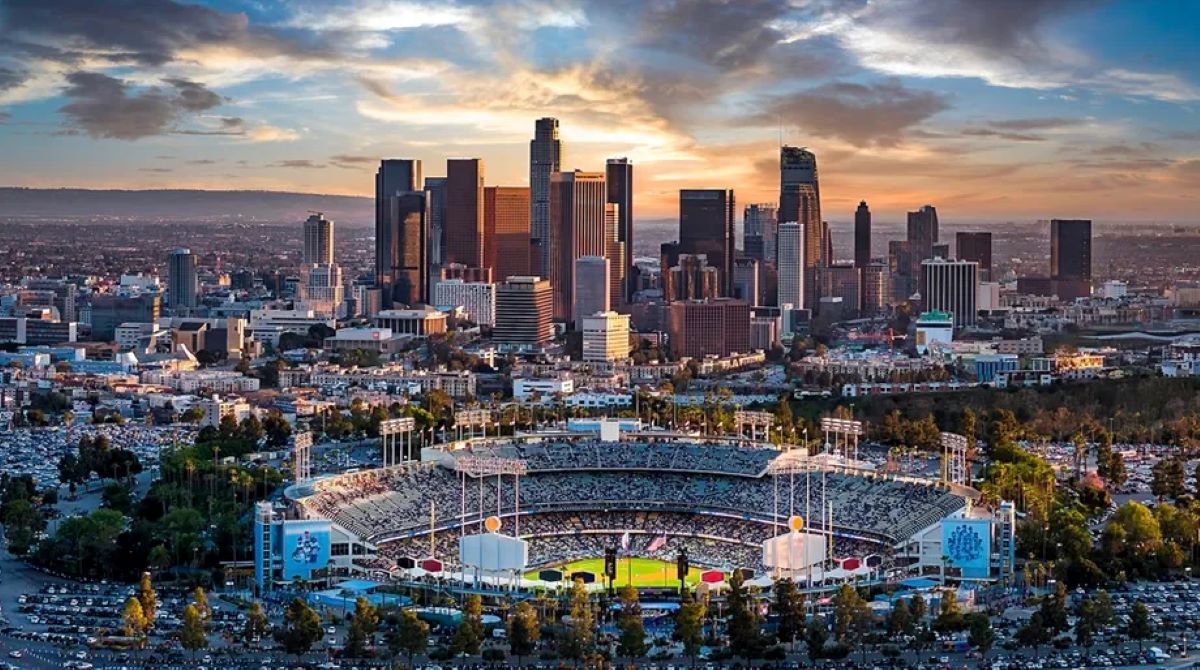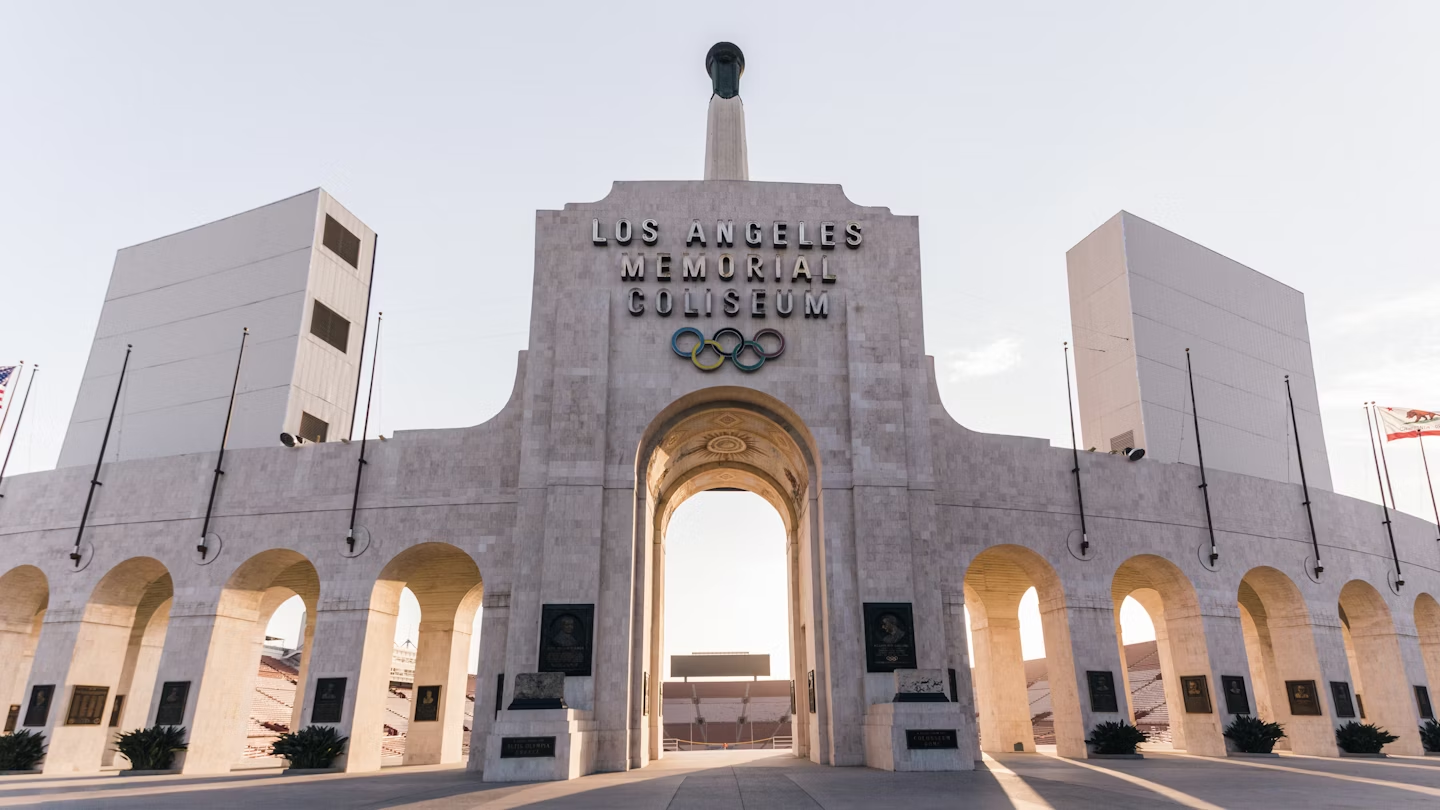The 2028 Olympic Games are set to take place from July 14 to July 30, marking Los Angeles’ third time hosting the Summer Games.
This milestone puts the city in exclusive company, joining London and Paris as the only cities to host the Olympics three times. Having previously welcomed the Games in 1932 and 1984, Los Angeles is gearing up to make history once again.
Following the end of the Paris 2024 Olympics, marked by a dazzling closing ceremony on Sunday, the Olympic torch has now been passed to Los Angeles.
During the Paris ceremony, Los Angeles Mayor Karen Bass accepted the Olympic flag before handing it to Hollywood icon Tom Cruise.
In a pre-recorded sequence featuring Cruise navigating via motorcycle, plane, and parachute, the four-year countdown to the 2028 Games officially began.
Mayor Bass, who is returning to Los Angeles on Monday, has vowed that the Olympics will leave a lasting, positive impact on the Californian metropolis of nearly 4 million residents.
“As we’ve seen here in Paris, the Olympics are an opportunity to make transformative change,” Bass remarked ahead of the closing ceremony.
Echoing her vision, Janet Evans, a four-time Olympic gold medalist and the chief athlete officer for the LA 2028 organizing committee, emphasized the spirit the city hopes to bring to the event.
“We want our games to be modern, youthful, and full of the optimism that Southern California brings to the world,” Evans said in Paris.
Building on LA’s Infrastructure
Rather than embarking on extensive new construction projects, Los Angeles plans to capitalize on existing facilities for what Evans describes as “no-build games.”
This approach is set against a backdrop of a booming stadium and arena.
Unlike Paris’ innovative Seine River opening ceremony, LA will take a more traditional route, holding its opening ceremony at SoFi Stadium in Inglewood while utilizing the historic Memorial Coliseum in downtown Los Angeles for other events.

Addressing the city’s well-known transportation challenges, organizers have pledged that all Olympic venues will be accessible exclusively by public transit.
This ambitious goal recalls the strategies employed during LA’s 1984 Olympics, when then-Mayor Tom Bradley implemented traffic changes that were widely praised.
To further alleviate congestion, local businesses will be encouraged to stagger employee work hours and promote remote work during the Games.
Since Los Angeles last hosted the Olympics, the city has significantly expanded its public transit system, including the development of a subway network.
Among the key initiatives for 2028 is the extension of a subway line to connect downtown LA with UCLA, where the Olympic Village will be based.
Other major projects include the Inglewood People Mover, a three-stop automated rail line designed to serve key Olympic venues.
Initially backed by $1 billion (€920 million) in federal funding, the project has faced opposition and a subsequent 20% budget cut, raising concerns about whether it will be completed in time.
“The real challenge isn’t just about being ready by 2028,” said Stephanie Wiggins, CEO of LA Metro. “It’s about using the time between now and then to help Angelenos and visitors alike reimagine the transportation network as their first choice.”
Emulating Paris’ Spectacle
Paris’ 2024 Olympics set a high bar by showcasing iconic landmarks such as the Eiffel Tower and the Seine River as backdrops for events. Emulating this spectacle will be a challenge for Los Angeles.
However, with major global events like a FIFA World Cup event in 2026, the US Women’s Open the same year, and a Super Bowl in 2027, LA will have opportunities to refine its hosting capabilities ahead of the Olympics.
The city’s hotel industry is also preparing for the influx of visitors. Over the past four years, Los Angeles has added 9,000 hotel rooms, with more developments planned before the Games.
Funding and Budget
The LA 2028 organizing committee is relying on a mix of revenue streams, including ticket sales, sponsorships, and payments from the International Olympic Committee, to cover the event’s $6.9 billion (€6.3 billion) budget.
As of now, the committee has raised just over €920 million toward its €2 billion goal in domestic corporate sponsorships.
The stage is set for Los Angeles to host an unforgettable Olympics, with significant planning underway to ensure the Games not only showcase the city’s spirit but also leave a lasting legacy.







